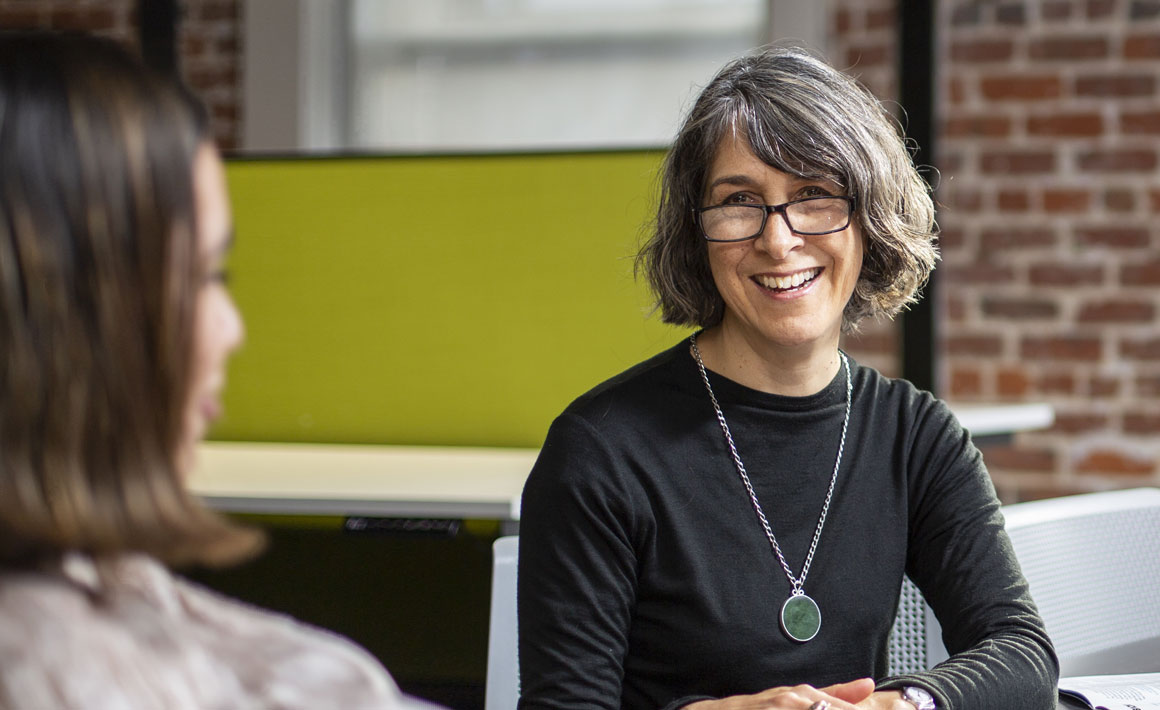 Dr Katharina Ruckstuhl: “Māori businesses are going to be eager to upskill and train so that their products can get to the world.”
Dr Katharina Ruckstuhl: “Māori businesses are going to be eager to upskill and train so that their products can get to the world.”The COVID-19 pandemic has adversely affected the Māori economy, but has also presented it with opportunities, says Otago Business School's Associate Dean – Māori, Dr Katharina Ruckstuhl.
The Māori economy has been particularly hard hit by the pandemic, says Dr Katharina Ruckstuhl. “In places like Rotorua and Queenstown, significant Māori tourism businesses have been hugely impacted and will take a time to recover.”
Ruckstuhl – whose ancestry includes Ngāi Tahu and who is involved in the iwi's governance – cites as an example the southern iwi “hibernating” some of its businesses, such as the Shotover Jet in Central Otago, Dark Skies in South Canterbury and Agrodome in Rotorua. She says that smaller hapū and whānau businesses have also been negatively impacted.
This is prompting a rethink about tourism: what it means from a Māori perspective and the Māori values that people might prefer to see in a tourism experience. “What those businesses will look like long-term is a question that Ngāi Tahu and all Māori tourism businesses are reconsidering,” she says. “These are the sorts of issues that the Business School's Māori and Indigenous Economy and Enterprise Network, Te Maea, has been set up to research.”
Beyond tourism, Ruckstuhl notes that more than half the Māori economy comprises land-based businesses. She believes that, in a post-COVID-19 world, people will be increasingly interested in the story behind the food they eat and that will give Māori an advantage.
“Part of the strength of the Māori economy is that it is values-based. It is about inter-generational benefit for people and a concern for where you are: your land, your water, your forests, your fish, your birds.
“That is one of the things that consumers increasingly want to know – they want a relationship with the food – and we can point to those values and say, 'This is our ancestral land where it was grown, this is how it was grown and harvested'.”
Ruckstuhl says that COVID-19 had also highlighted the increasing importance of digital platforms.
“Māori increasingly understand that digital platforms – marketing, search optimisation, online selling platforms – are where business needs to go. Māori businesses are going to be eager to upskill and train so that their products can get to the world.”
One of the digital projects she is working on is associated with the New Zealand Centre of Digital Excellence, which is a Dunedin-based hub supported by the University of Otago, designed to progress the expansion of the video game industry.
“People being at home during the COVID-19 lockdown has meant that online gaming has taken off and new games developed or launched over the period have had huge uptake globally. My role is to look at what that means for Māori and how Māori can be part of that new economy.”
“Part of the strength of the Māori economy is that it is values-based. It is about inter-generational benefit for people and a concern for where you are: your land, your water, your forests, your fish, your birds. That is one of the things that consumers increasingly want to know…”
She sees further opportunities, too, for Māori entrepreneurship in an increasingly digital post-COVID-19 world.
“In the Business School, we have been running a Konaki programme – in partnership with Māori business, Innov8HQ – which is about getting Māori students to work with Māori businesses. In the past, it has been face-to-face but, because of COVID-19, everything has had to move online.
“You could not have a more important time to make this type of work something of value, not only for our students, who are applying their theory, but also for our small Māori businesses that are looking for support.”
Ruckstuhl is a co-leader of Building New Zealand's Innovation Capacity, a research project within the Science for Technological Innovation National Science Challenge that is evaluating how researchers within the challenge and external stakeholders – including Māori business and organisations – interact, and how this knowledge can boost innovation.
Part of her research is looking at how Māori can be drawn into new types of business, or how current businesses can use science-generated technology. She is particularly focused on Māori data sovereignty.
“How do we ensure that Māori have some oversight over the use of data generated by Māori or describing Māori and how do we use that data in a way that empowers Maori communities? Post-COVID-19, I think that these types of conversations are only going to accelerate.”
Funding
Ministry of Business, Innovation and Employment – SfTI National Science Challenge